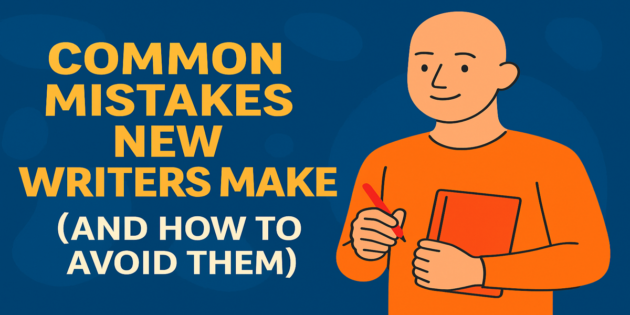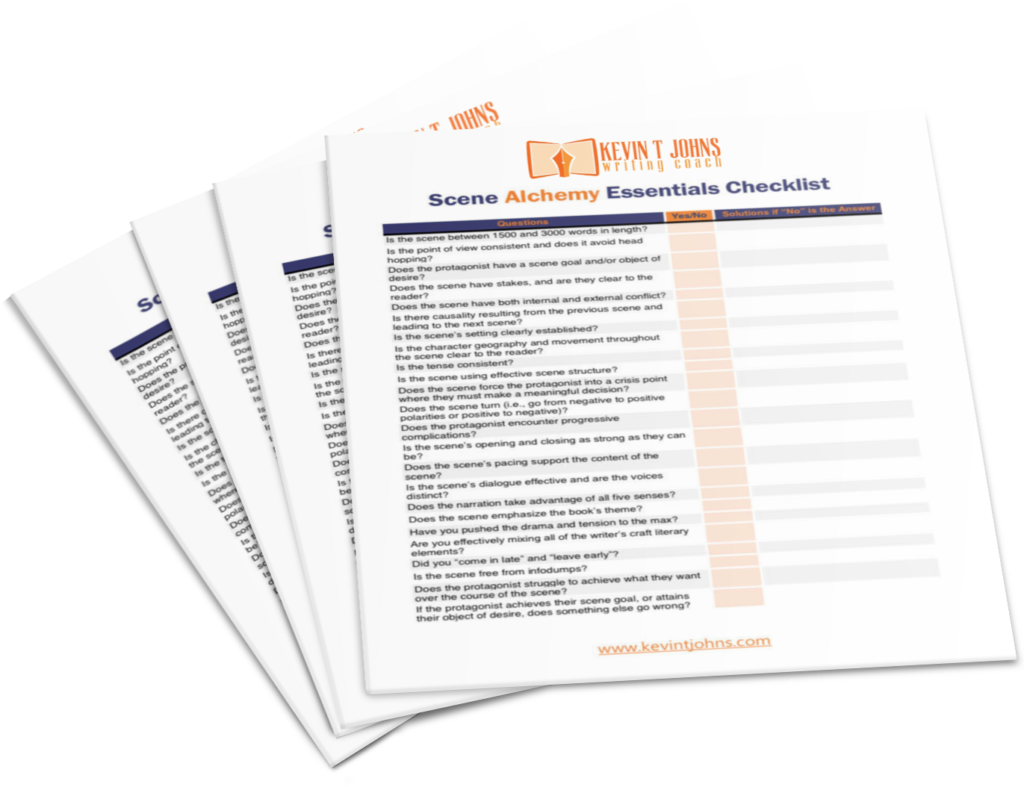In today’s article, I want to do something a little different.
Usually, when I talk about common mistakes writers make, it’s from the perspective of the coach, the mentor, the teacher.
But today?
Today I’m fessing up.
Every single mistake I’m about to walk you through isn’t just something I see writers doing over and over again… It’s something I did myself when I was writing and publishing my very first book.
Let’s dive in.
1. The POV Disaster
When I sat down to write my first novel, I had multiple characters… and I hopped into all of their heads whenever I felt like it.
I had no idea I was doing anything wrong! I was writing like a movie (you see one character’s face, then another’s thoughts, then another’s reactions), and it all made perfect sense to me.
That is, until I did a manuscript exchange with a local writer. Over coffee, she looked me dead in the eye and said:
“You know you’re head-hopping throughout the book, right?”
My response?
“Am I not allowed to do that?”
And that’s when I realized that despite having a Master’s degree in English Literature, no one had ever taught me the basics of point of view.
Ever since then, it’s been one of the first things I check when I read a manuscript from a new client:
- What POV is this written in?
- Are they sticking to it?
And honestly? Most of the time, the answer is “No.”
Most new writers (just like I did) tend to write in this weird hybrid: sort-of third-person-limited- sort-of-omniscient style with head-hopping sprinkled everywhere.
If you’re working on your first manuscript, ask yourself:
- Are you using third-person limited? Good. Stick to one character’s head per scene.
- Are you claiming you’re using omniscient? Be careful. True omniscience isn’t just random head-hopping and can be challenging to pull off for a first-time novelist.
Mastering point of view will instantly tighten your story and bring your readers closer to your characters.
2. Too Many Ideas, Too Little Focus
We hear about writer’s block all the time. But in my experience coaching writers, the real problem isn’t not having enough ideas, it’s having too many.
Writers pile every concept they’ve ever loved into one book. The story sprawls. Scenes rush by because there’s just too much happening. Manuscripts balloon to 180,000 words.
How do I know?
That’s what happened to me.
I had so many ideas that I was cramming a trilogy’s worth of story into one book. Rushing through scenes. Piling plotlines on top of each other. It was a mess.
Eventually, I realized that the first act of my original manuscript was enough for an entire book. That’s how The Page Turners: Blood came to be: a story trimmed down to one clear, powerful narrative.
If your story feels out of control, ask yourself:
- Can you split it into multiple books?
- Are you giving each scene the space it needs to breathe?
Less is more, especially when you’re just starting out.
3. Too Many Characters (and No Clear Hero)
Similar to the too-many-ideas problem, I often see new novelists with too many characters.
When I wrote my first novel, I had three leads. Not one protagonist… three! Plus a handful of side characters who started feeling just as important as the main ones.
Sound familiar?
Here’s the thing:
Readers bond most deeply with a clear hero. A Harry Potter. A Katniss Everdeen. A Luke Skywalker.
When you don’t give them a single character to root for, the story feels scattered, and the emotional investment isn’t there.
Pick your hero. Build your story around them. The other characters? They can shine too, but there needs to be one anchor.
4. The Genre Mashup Monster
Ah, genre mashups.
Growing up, I loved comic books. I loved Buffy the Vampire Slayer. I loved the way stories could leap from horror to sci-fi to fantasy in one wild ride.
So naturally, my first novel was going to be a sci-fi-horror-fantasy mashup… written in a quasi-literary style.
Spoiler alert:
It was… ambitious.
Maybe a little too ambitious.
Now, don’t get me wrong. I love genre mashups. But mastering one genre is hard enough. Trying to master three at once (while also learning how to write a novel for the first time) just made things so much harder.
If you’re writing your first book, I HIGHLY recommend picking a single genre and committing to it. Deliver the emotional experience readers are craving. Build your chops.
You can get fancy later.
5. Self-Conscious, Show-Offy Writing
Early on, I was desperate for readers to be impressed by my writing.
I wanted them to say, “Wow, this guy can write!”
And maybe they did… but it came at a cost.
Every time the reader notices you, the author, they’ve been pulled out of the story.
Commercial genre fiction isn’t about showing off. It’s about disappearing. It’s about crafting such an immersive world that readers forget you even exist.
Stop worrying about proving you’re a “good writer.” Start focusing on delivering a great story experience.
That’s what readers actually want.
6. Stories That Are Way Too Close to Home
Last but not least:
My first book was a thinly veiled version of my own childhood.
Small-town kid? Check.
Bullies? Check.
Dysfunctional family? Check.
Trauma? Check, check, and check.
At the time, I thought it would be cathartic, maybe even healing. But it wasn’t.
In fact, it often just stirred up old wounds without offering any real resolution.
Plus, when you base your characters too closely on yourself, it becomes really hard to take feedback. If someone says your protagonist is unlikeable, you take it personally because it is personal.
When I wrote my third novel, M School, I deliberately created a protagonist who was nothing like me: a sociopathic young woman who probably would have bullied emo-kid Kevin if they’d gone to the same school.
And you know what?
It was freeing.
I could do anything with that character without feeling personally attacked.
Fiction works best when you have some distance from it.
Final Thoughts
Every mistake I just described? I made it.
I head-hopped.
I had too many ideas.
I wrote too many characters without a clear lead.
I mashed up too many genres.
I tried to show off with my writing.
And I wrote way too close to home.
If you’re seeing yourself in any of these patterns, don’t beat yourself up.
It’s normal.
It’s part of the process.
And most importantly: it’s fixable.
—
Kevin T. Johns is a writing coach who made every rookie mistake in the book—so you don’t have to. Get his checklist for turning ordinary scenes into literary gold: Download the FREE Scene Alchemy Essentials Checklist Now!







